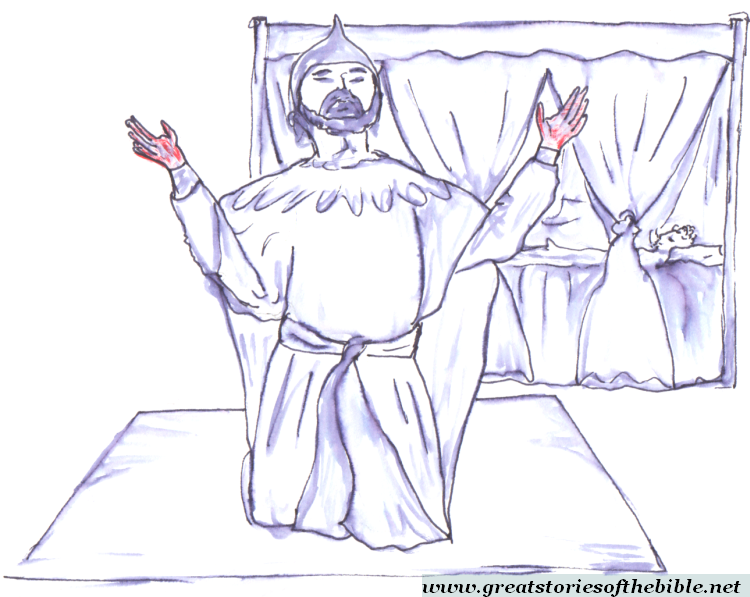Bathsheba - episode 2
Have mercy on me, God
With the present post, we are going to complete the story of Bathsheba and examine more deeply the role of the four women in Jesus’ genealogy according to Evangelist Matthew.
King David, caught by his lust, has committed adultery with the wife of Uriah, his faithful soldier. From that fact we can understand how the sin works and that the commandments by God are all joined together (infringing one of them brings a person to infringe others, in a bad chain reaction): from the king’s heart was born the evil desire of going with a married woman; when pandered, this desire took David to the adultery. Then followed the lie to try hiding the sin, to make Uriah believe that the child was his; the plan failed because of Uriah’s honesty, so that the king made the decision to have him killed (with Uriah died some other innocent people too). The will to protect his reputation makes the sin grow exponentially, while at every point this bad chain could have been broken by an admission of responsibility and a request for forgiveness.
David needs a reproach that makes him conscious of the bad thing he has done, so the LORD sends Prophet Nathan telling him the parable of the merciless rich man that we wrote about last time. «You are the man. This is what the LORD, the God of Israel, says: I anointed you king over Israel, and I delivered you out of the hand of Saul. I gave you your master’s house, and your master’s wives into your bosom, and gave you the house of Israel and of Judah; and if that would have been too little, I would have added to you many more such things. Why have you despised the word of the LORD, to do that which is evil in his sight? You have struck Uriah the Hittite with the sword, and have taken his wife to be your wife, and have slain him with the sword of the children of Ammon» (2Sam 12,7-9). David admits his sin (I invite you to read the beautiful Psalm 51, according to the Tradition made up by the king to ask forgiveness to the LORD: «Have mercy on me, God, according to your loving kindness. According to the multitude of your tender mercies, blot out my transgressions […]»). The LORD forgives, but the consequences of the sin remain: the innocent child that Bathsheba bore dies of a severe illness, despite the prayers and fasts by David. Even for the future: «the sword will never depart from your house, because you have despised me, and have taken the wife of Uriah the Hittite to be your wife. This is what the LORD says: Behold, I will raise up evil against you out of your own house; and I will take your wives before your eyes, and give them to your neighbor, and he will lie with your wives in the sight of this sun. For you did it secretly, but I will do this thing before all Israel, and before the sun» (2Sam 12,10-12: this will happen when another sons of David, Absalom, will shortly usurp his father’s throne).

God’s mercy, instead, gets visible in the second son that Bathsheba, now really «wife», gives to David: Solomon-Jedidiah (“loved by the LORD”), who will be Jesus’ ancestor in Evangelist Matthew’s genealogy.
So, what is the golden thread that joins the quite “scandalous” stories of the four women in Jesus’ genealogy? They are foreigners (Rahab and Ruth for sure, Tamar and Bathsheba probably), therefore excluded from Israel’s covenants and salvation; they are in situations where death seems to win (the widows Tamar and Ruth) or sin (Rahab is a harlot and Bathsheba commits adultery with David). Despite that, their courageous faith in the LORD makes them change for the better their life, with a real spiritual rebirth. The golden thread that joins together their stories is the Providence of God, that enters every persons’ life (even the most apparently inappropriate) as they are, with their defects, only looking for a bit of faith to convert death in life, darkness in light. The salvation is not limited to those four women’s situation, but puts them in a big and marvelous project for all mankind: the incarnation of the Son of God.
From the stories of Tamar, Rahab, Ruth and Bathsheba we can have the confident certainty that the good will of the LORD does not exclude anyone, although sinner; it is enough to trust in Him to see great things happen and become a part of God’s plan for the salvation of the world.